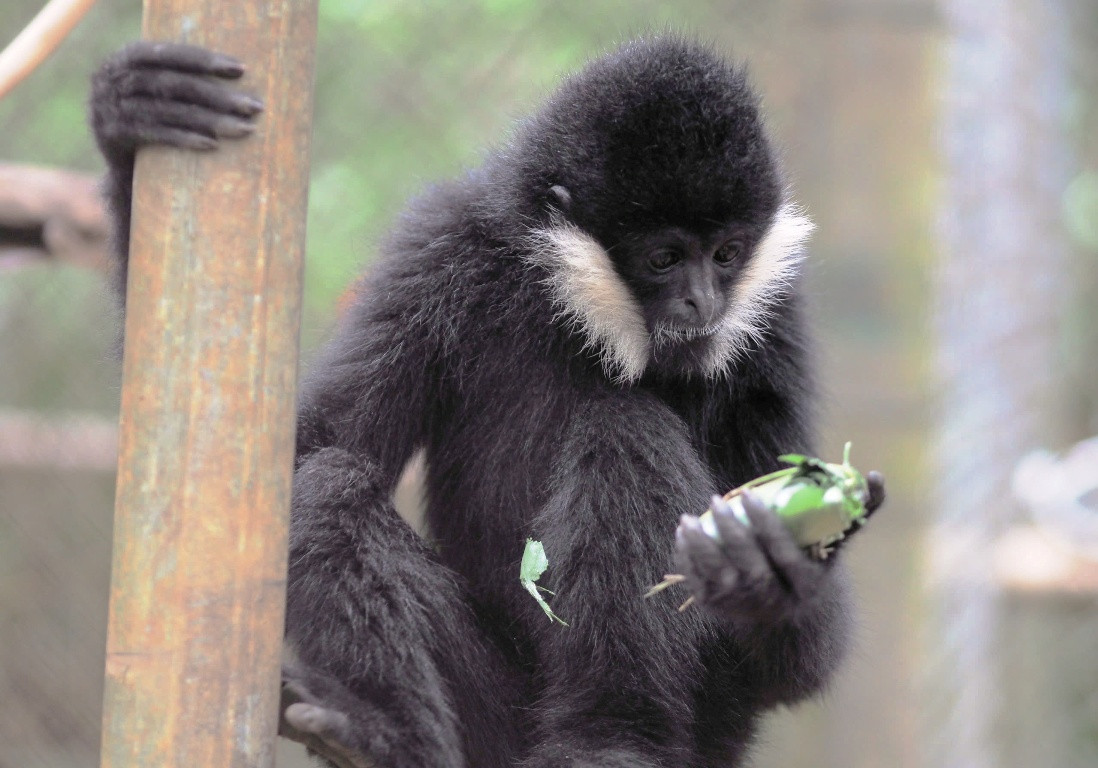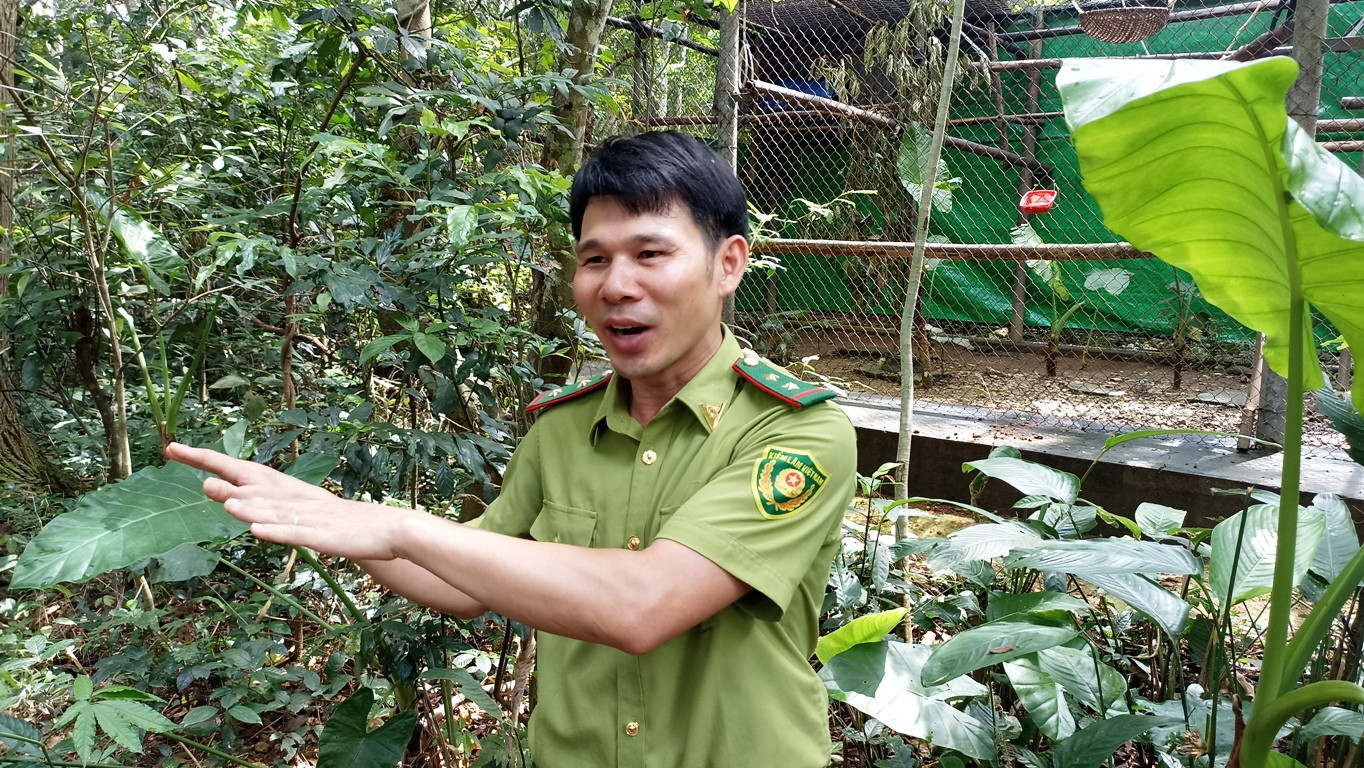
The white-cheeked black gibbon, nicknamed “Mafia,” rescued from a drug lord's home in 2018. Photo: EPRC
A rare white-cheeked black gibbon, affectionately called "Mafia," is currently under the care of the Endangered Primate Rescue Center (EPRC) at Cuc Phuong National Park in Ninh Binh.
This male gibbon, estimated to have been born around 2012, was rescued in 2018 from the home of Trieu Ky Voong, one of Northern Vietnam’s most notorious drug lords.
Pham Phu Cuong, an official from Cuc Phuong National Park, noted that each rescued animal has a unique, often tragic backstory. Mafia was found in Voòng’s residence, where the drug lord reportedly kept various wild animals as pets. He had even dedicated the entire ninth floor of his home to the gibbon.
When the gibbon was first rescued, it displayed signs of lethargy and depression, often sitting quietly in a corner. Initially, the EPRC staff were concerned that Mafia might have been exposed to drugs. They closely monitored its behavior and symptoms.
Fortunately, Mafia recovered well and showed no signs of addiction.

Pham Phu Cuong, an official at Cuc Phuong National Park, shares the stories of rescued animals. Photo: Tran Nghi
According to Cuong, the name "Mafia" was given by German animal care specialist Elke Schwierz. The nickname reflects Mafia’s former owner, Trieu Ky Voong, and the journey to freedom that the gibbon has endured. The name also serves as a message against illegal wildlife trafficking and drug crime.
In 2019, Mafia was paired with a female gibbon, bringing some companionship to its life at the center.
“Like humans, wildlife needs a family and a home. Their true home is in nature, in the forests,” Cuong shared. “We must protect wildlife and their habitats. When animals return to nature, it helps maintain ecological balance, which in turn benefits us all.”
Due to health conditions, Mafia cannot be returned to the wild. Instead, the gibbon will stay at the center as an “ambassador for conservation.”
Currently, the Endangered Primate Rescue Center is caring for 231 animals across 15 species, including various species of langurs, gibbons, and lorises.
Tran Nghi